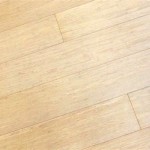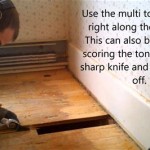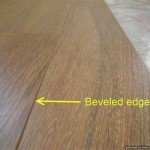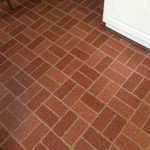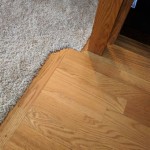Installing Engineered Hardwood Flooring on Concrete: A Comprehensive Guide
Engineered hardwood flooring is a popular choice for its durability, beauty, and ease of installation. While it can be installed on various subfloors, concrete is a particularly suitable option due to its stability and moisture resistance. Here's a comprehensive guide to installing engineered hardwood flooring on concrete:
1. Preparation
Before installation, it's crucial to ensure that the concrete subfloor is smooth, level, and dry. Any unevenness or moisture can affect the floor's stability and longevity. If necessary, use a self-leveling compound to smooth out the surface and a moisture barrier to prevent moisture from seeping up through the concrete.
2. Underlayment
An underlayment provides a layer of cushioning and soundproofing between the concrete and the hardwood flooring. It also helps to level out any minor imperfections in the subfloor. There are different underlayment options available, so choose one that is compatible with engineered hardwood flooring and meets your desired level of insulation and sound absorption.
3. Adhesive Selection
For concrete subfloors, a moisture-resistant adhesive is recommended to prevent moisture from seeping up and damaging the flooring. Use an adhesive specifically designed for engineered hardwood flooring and follow the manufacturer's instructions for application.
4. Installation
Start by installing a spacer along the perimeter of the room to create an expansion gap, which allows the flooring to expand and contract with temperature and humidity changes. Begin installing the planks from the corner of the room, working your way out. Spread the adhesive evenly onto the concrete and carefully place the planks into position, gently tapping them down with a rubber mallet. Ensure that the planks are tightly joined and level.
5. Trimming and Molding
Once the flooring is installed, you need to trim any excess around the edges of the room. Use a fine-toothed saw to make precise cuts and a pry bar to remove any protruding pieces. Install baseboards or quarter-round molding to create a finished look and conceal any gaps.
6. Finishing Touches
After the installation is complete, clean the floor thoroughly to remove any adhesive residue or debris. You can then apply a sealant or protective finish to enhance the durability and beauty of the floor. Follow the manufacturer's recommendations for maintenance and cleaning to ensure the longevity of your engineered hardwood flooring.

Installing Engineered Hardwood On Concrete Twenty Oak

Installing Engineered Hardwood On Concrete Twenty Oak

Installing Wood Flooring Over Concrete Diy

Installing Engineered Flooring On A Concrete Slab Fine Homebuilding

Installing Hardwood Floors On Concrete Subfloors

How To Install An Engineered Hardwood Floor

How To Install Engineered Flooring On Concrete Adm

Installing Engineered Hardwood On Concrete Villagio Guide

Installing Engineered Hardwood On Concrete Faqs Checklist

How To Install Lock Engineered Hardwood Flooring
Related Posts


